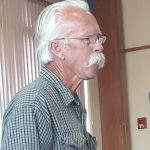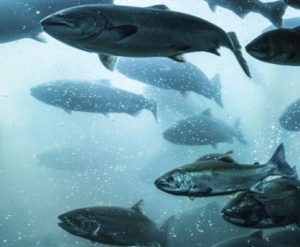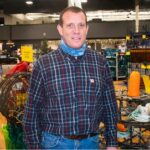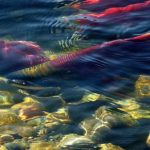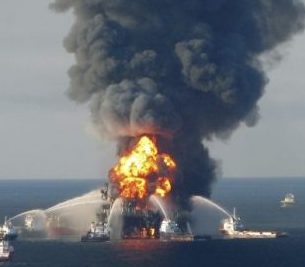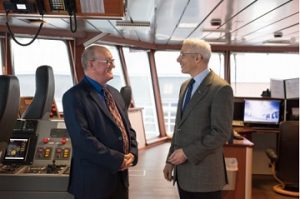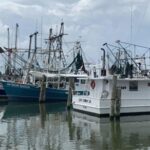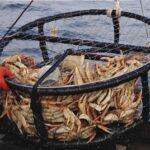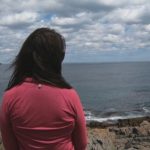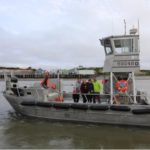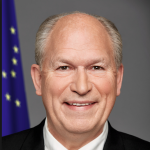Tag Archives: “scientists”
RI Fishermen, Scientists Study Impact Of Offshore Wind Farm On Fisheries
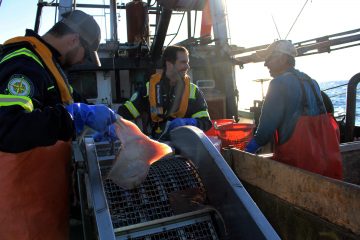 Every month for the past four and a half years, Captain Rodman Sykes has sailed out toward the Block Island Sound with his crew and a small group of scientists. They tow a fish net and scrape the seafloor twice in three different locations: within the area of the Block Island Wind Farm and in areas close to it for reference. “Mostly skates, there’s a sea bass and a few small scup, sea robins, dog fish,” Sykes says aloud as he stands over the fish to inspect them each time his crew brings up the net and releases the catch. “Not much else, but a good sample. So we’ll go on to the next station.” While Sykes redirects his vessel to the next sampling area, scientists get right to work: sorting fish by species, taking their weight, and measuring their length. Together these scientists and fishermen make up the research team hired by Deepwater Wind to collect data to understand the wind farm’s impacts to fish and shellfish. Sykes says at first that didn’t sit well with a small group of fishermen. “I had guys question me about ‘why are you working for the wind farm?’” recalls Sykes. “I told them, ‘I am not working for the wind farm, I am working for the fishing community.’” Read the story here 10:40
Every month for the past four and a half years, Captain Rodman Sykes has sailed out toward the Block Island Sound with his crew and a small group of scientists. They tow a fish net and scrape the seafloor twice in three different locations: within the area of the Block Island Wind Farm and in areas close to it for reference. “Mostly skates, there’s a sea bass and a few small scup, sea robins, dog fish,” Sykes says aloud as he stands over the fish to inspect them each time his crew brings up the net and releases the catch. “Not much else, but a good sample. So we’ll go on to the next station.” While Sykes redirects his vessel to the next sampling area, scientists get right to work: sorting fish by species, taking their weight, and measuring their length. Together these scientists and fishermen make up the research team hired by Deepwater Wind to collect data to understand the wind farm’s impacts to fish and shellfish. Sykes says at first that didn’t sit well with a small group of fishermen. “I had guys question me about ‘why are you working for the wind farm?’” recalls Sykes. “I told them, ‘I am not working for the wind farm, I am working for the fishing community.’” Read the story here 10:40
Billionaire crony corporatist schemes – Financing “green” companies and enviro groups, getting richer off taxpayers and consumers
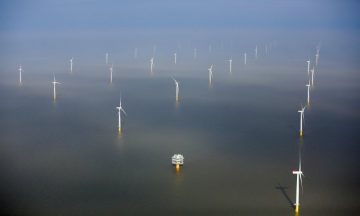 Shady cash from Vladimir Putin’s Russian energy oligarchs and other rich donors is being laundered through Bermuda-based lawyers and middlemen to “green” pressure groups, lobbyists and spinmeisters – to promote “green energy” schemes that bring billions of dollars from government agencies (and thus from us taxpayers and consumers) to a cabal of billionaires and crony companies. At the epicenter are hedge fund millionaire Nathaniel Simons, his wife Laura and their secretive Sea Change Foundation. “Investors” become even wealthier, as billions of dollars are transferred annually to environmentalists, scientists, politicians, bureaucrats and crony-corporatists in Renewable Energy & Climate Crisis, Inc. The alleged “urgency” of replacing fossil fuels with “eco-friendly renewable energy” (to prevent catastrophic manmade climate change) drives and excuses operations that define or barely skirt “corrupt practices.” The arrangements are too convoluted to explain in one article. Even the US Senate’s “Billionaires’ Club” report, Environmental Policy Alliance’s “From Russia with Love” study, and articles by investigative journalists like Ron Arnold and Lachlan Markay (here, here and here) barely scratch the surface. Washington is out of control. The IRS targeting conservative groups, Clinton Foundation and national security scandals, FBI pseudo-investigations and whitewashing, bureaucrats imposing $1.9 trillion in economy-crushing regulations that ruin families and communities – with virtually no perpetrators ever held accountable. Read the essay here 16:12
Shady cash from Vladimir Putin’s Russian energy oligarchs and other rich donors is being laundered through Bermuda-based lawyers and middlemen to “green” pressure groups, lobbyists and spinmeisters – to promote “green energy” schemes that bring billions of dollars from government agencies (and thus from us taxpayers and consumers) to a cabal of billionaires and crony companies. At the epicenter are hedge fund millionaire Nathaniel Simons, his wife Laura and their secretive Sea Change Foundation. “Investors” become even wealthier, as billions of dollars are transferred annually to environmentalists, scientists, politicians, bureaucrats and crony-corporatists in Renewable Energy & Climate Crisis, Inc. The alleged “urgency” of replacing fossil fuels with “eco-friendly renewable energy” (to prevent catastrophic manmade climate change) drives and excuses operations that define or barely skirt “corrupt practices.” The arrangements are too convoluted to explain in one article. Even the US Senate’s “Billionaires’ Club” report, Environmental Policy Alliance’s “From Russia with Love” study, and articles by investigative journalists like Ron Arnold and Lachlan Markay (here, here and here) barely scratch the surface. Washington is out of control. The IRS targeting conservative groups, Clinton Foundation and national security scandals, FBI pseudo-investigations and whitewashing, bureaucrats imposing $1.9 trillion in economy-crushing regulations that ruin families and communities – with virtually no perpetrators ever held accountable. Read the essay here 16:12
Fishermen, scientists split on closures of triggerfish, amberjack
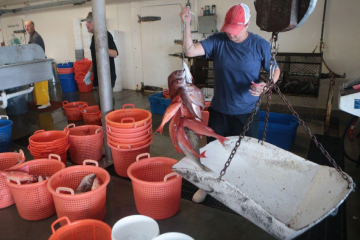 On any given day, charter boat captain Jeff Lassiter and his customers will catch dozens of gray triggerfish. Then they’ll toss them back in the water. “They’re dang near a nuisance,” But just two weeks before the scheduled Aug. 1 reopening date, national and state fishing officials changed their minds. Because of overfishing, NOAA Fisheries decided not to reopen triggerfish in federal waters this year, and the Florida Fish and Wildlife Conservation Commission (FWC) elected to follow suit. Officials said anglers already had met the allowable catch quota for the year, and to keep going would jeopardize the overall sustainability of the stock. NOAA also opted to not reopen amberjack for the same reasons, which means head boats and charter boat captains, which all have federal permits, will not be able to take customers out to fish for either species. Read the rest here 12:13
On any given day, charter boat captain Jeff Lassiter and his customers will catch dozens of gray triggerfish. Then they’ll toss them back in the water. “They’re dang near a nuisance,” But just two weeks before the scheduled Aug. 1 reopening date, national and state fishing officials changed their minds. Because of overfishing, NOAA Fisheries decided not to reopen triggerfish in federal waters this year, and the Florida Fish and Wildlife Conservation Commission (FWC) elected to follow suit. Officials said anglers already had met the allowable catch quota for the year, and to keep going would jeopardize the overall sustainability of the stock. NOAA also opted to not reopen amberjack for the same reasons, which means head boats and charter boat captains, which all have federal permits, will not be able to take customers out to fish for either species. Read the rest here 12:13
Can 1,500 Scientists All Be Wrong urging Obama to expand Papahanaumokuakea Marine National Monument?
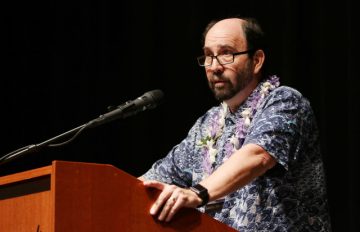 More than 1,500 scientists from around the world have signed a letter urging President Obama to use his executive authority to expand Papahanaumokuakea Marine National Monument in the Northwestern Hawaiian Islands. “There is a growing consensus among marine scientists that 30% of the oceans be set aside for adequate protection against human exploitation, yet only two percent presently benefits from full protection,” the letter said. The group said expanding the monument from the current 50-mile boundary to the full 200-mile allowable limit as proposed would be a “substantial step in the right direction, creating the largest reserve in the world.” Read the scientists’ letter to the president, along with a list of everyone who signed it. Read the rest here 09:00
More than 1,500 scientists from around the world have signed a letter urging President Obama to use his executive authority to expand Papahanaumokuakea Marine National Monument in the Northwestern Hawaiian Islands. “There is a growing consensus among marine scientists that 30% of the oceans be set aside for adequate protection against human exploitation, yet only two percent presently benefits from full protection,” the letter said. The group said expanding the monument from the current 50-mile boundary to the full 200-mile allowable limit as proposed would be a “substantial step in the right direction, creating the largest reserve in the world.” Read the scientists’ letter to the president, along with a list of everyone who signed it. Read the rest here 09:00
South Atlantic Council, NOAA science gets ripped! Another crooked closure of red snapper
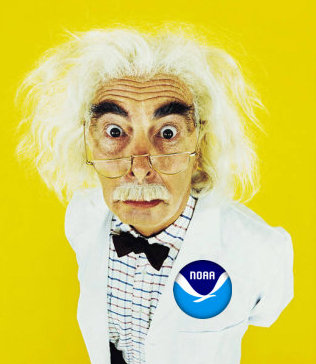 Many of you aren’t fishermen. But even if you don’t know a red snapper from gangsta rapper, this might still be worth a look. The South Atlantic Fisheries Management Council is as crooked and bloated a government bureaucracy as exists today. It perverts science. It feeds on special interests. More importantly, it squanders a natural resource. It announced this week the 2016 season for the American Red Snapper will be closed — as it was in 2015. During the three years prior, the season was open for a total of 12 days. It all began in 2008 when NOAA scientists determined that the red snapper stock in the South Atlantic was at just 3 percent of the biomass 50 years prior. That would have been 1958 when there was neither a NOAA, nor any other group counting red snapper. Perhaps 10 percent of all boats, recreational and commercial, could make the trip out 50 miles where the species thrives. There was no real sonar to find the hundreds of reefs where the fish spawned and no satellite positioning systems to find them again if you did hit a honey hole by accident or luck. So the “science” began as a fabrication, and that continues today. Read the op-ed here 07:45
Many of you aren’t fishermen. But even if you don’t know a red snapper from gangsta rapper, this might still be worth a look. The South Atlantic Fisheries Management Council is as crooked and bloated a government bureaucracy as exists today. It perverts science. It feeds on special interests. More importantly, it squanders a natural resource. It announced this week the 2016 season for the American Red Snapper will be closed — as it was in 2015. During the three years prior, the season was open for a total of 12 days. It all began in 2008 when NOAA scientists determined that the red snapper stock in the South Atlantic was at just 3 percent of the biomass 50 years prior. That would have been 1958 when there was neither a NOAA, nor any other group counting red snapper. Perhaps 10 percent of all boats, recreational and commercial, could make the trip out 50 miles where the species thrives. There was no real sonar to find the hundreds of reefs where the fish spawned and no satellite positioning systems to find them again if you did hit a honey hole by accident or luck. So the “science” began as a fabrication, and that continues today. Read the op-ed here 07:45
Ottawa’s hiring wave to bolster federal science at sea
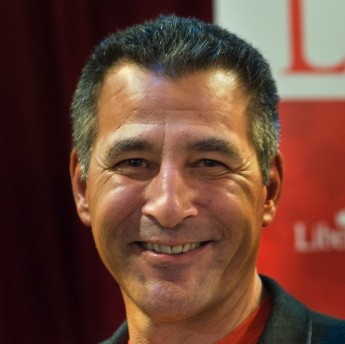 The federal government is about to do something it hasn’t done much of for years: hire scientists – a lot of them. At an event scheduled for Wednesday morning in Ottawa, Hunter Tootoo, the Minister of Fisheries, Oceans and the Canadian Coast Guard, is expected to announce that his department is looking to add 135 science-related personnel. The new hires would boost science staff at the department by about 15 per cent, its largest increase since the seventies and early eighties, when international agreements expanded Canada’s exclusive control of its ocean resources out to the 200-nautical-mile limit. “This level of hiring will almost certainly strengthen the capacity of ministry staff to provide high-quality science advice to decision-makers,” Jeff Hutchings, a fisheries scientist and professor at Dalhousie University in Halifax, said.Hang on Fishermen! Read the rest here 14:16
The federal government is about to do something it hasn’t done much of for years: hire scientists – a lot of them. At an event scheduled for Wednesday morning in Ottawa, Hunter Tootoo, the Minister of Fisheries, Oceans and the Canadian Coast Guard, is expected to announce that his department is looking to add 135 science-related personnel. The new hires would boost science staff at the department by about 15 per cent, its largest increase since the seventies and early eighties, when international agreements expanded Canada’s exclusive control of its ocean resources out to the 200-nautical-mile limit. “This level of hiring will almost certainly strengthen the capacity of ministry staff to provide high-quality science advice to decision-makers,” Jeff Hutchings, a fisheries scientist and professor at Dalhousie University in Halifax, said.Hang on Fishermen! Read the rest here 14:16
Thursday: Challenges facing New England’s commercial fishing industry topic of public forum at RI College
A panel of government regulators, scientists, environmental advocates and fishermen will try to answer questions about the future of one of New England’s most iconic and important industries at a forum this Thursday. The event, which is free and open to the public, runs from 6 to 8 p.m. at Sapinsley Hall in the Nazarian Center for the Performing Arts at Rhode Island College. The panel will include: John Bullard, regional administrator with NOAA’s Northeast Regional Office; Graham Forrester, professor in the Department of Natural Resources Science at the University of Rhode Island; Erica Fuller, senior associate attorney with Earth Justice; Matt Tinning, senior director, U.S. Oceans Program, Environmental Defense Fund; David Goethel, captain and owner of the Ellen Diane; Mark Phillips, captain and owner of FV Illusion; and Daniel Georgianna, Chancellor professor of economics at the University of Massachusetts Dartmouth. Read the rest here 12:40
Scientists, lobstermen disagree on state of fishery
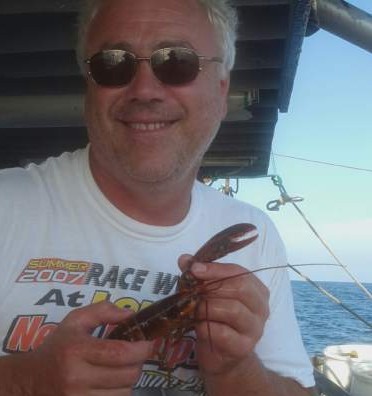 Mark Sweitzer has a degree in chemistry, but he began fishing for lobster back in the 1970s and is still at it today. Sweitzer fishes out of the Port of Galilee on the F/V Erika Knight. “I like being outside,” he said. “I always thought about going back to school for geology or forestry or something like that, that would enable me to be outside. I love being outside and I love being around the ocean, so that was a big part of it, and I like having my own business.” Rhode Island’s lobster fishery may never see another boom time like the period in the ’80s and ’90s when there were plenty of lobsters and lots of money to be made. There are fewer lobsters and fewer lobster fishermen today, but explanations for the stock fluctuation vary widely. Read the rest here 08:19
Mark Sweitzer has a degree in chemistry, but he began fishing for lobster back in the 1970s and is still at it today. Sweitzer fishes out of the Port of Galilee on the F/V Erika Knight. “I like being outside,” he said. “I always thought about going back to school for geology or forestry or something like that, that would enable me to be outside. I love being outside and I love being around the ocean, so that was a big part of it, and I like having my own business.” Rhode Island’s lobster fishery may never see another boom time like the period in the ’80s and ’90s when there were plenty of lobsters and lots of money to be made. There are fewer lobsters and fewer lobster fishermen today, but explanations for the stock fluctuation vary widely. Read the rest here 08:19
Scientists have routinely exaggerated the “evil twin of climate change” aka ocean acidification
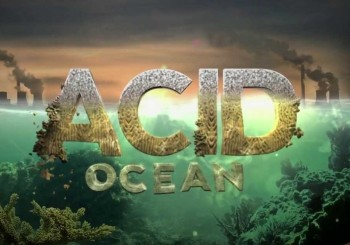 A new paper published in the ICES Journal of Marine Science puts the issue of “ocean acidification” to the test, and finds that there has been significant exaggeration in the issue. The paper is: Applying organized scepticism to ocean acidification research “Ocean acidification” (OA), a change in seawater chemistry driven by increased uptake of atmospheric CO2 by the oceans, has probably been the most-studied single topic in marine science in recent times. The majority of the literature on OA report negative effects of CO2 on organisms and conclude that OA will be detrimental to marine ecosystems. As is true across all of science, studies that report no effect of OA are typically more difficult to publish. Read the rest here 11:12
A new paper published in the ICES Journal of Marine Science puts the issue of “ocean acidification” to the test, and finds that there has been significant exaggeration in the issue. The paper is: Applying organized scepticism to ocean acidification research “Ocean acidification” (OA), a change in seawater chemistry driven by increased uptake of atmospheric CO2 by the oceans, has probably been the most-studied single topic in marine science in recent times. The majority of the literature on OA report negative effects of CO2 on organisms and conclude that OA will be detrimental to marine ecosystems. As is true across all of science, studies that report no effect of OA are typically more difficult to publish. Read the rest here 11:12
New Study: Scientists unravel whale entanglement damage
 Scientists from the Woods Hole Oceanographic Institution have released a new study documenting how much damage entanglements in fishing gear does to North Atlantic right whales — one of the most endangered of all the large whale species. Their migratory routes take them through some of the busiest commercial fishing areas along the East Coast of the United States — including the Gulf of Maine — and into . According to the institution scientists, entanglements with fishing gear represent the leading cause of death for endangered whales. Read the article here, 18:32
Scientists from the Woods Hole Oceanographic Institution have released a new study documenting how much damage entanglements in fishing gear does to North Atlantic right whales — one of the most endangered of all the large whale species. Their migratory routes take them through some of the busiest commercial fishing areas along the East Coast of the United States — including the Gulf of Maine — and into . According to the institution scientists, entanglements with fishing gear represent the leading cause of death for endangered whales. Read the article here, 18:32
Scientists, Fishing Fleet Team Up To Save Cod — By Listening
 In the ocean off of Massachusetts, an unlikely alliance of scientists and fishermen is on a quest. They’re looking for mating codfish. The goal is not only to revive a depleted fish population, but to save an endangered fishing community as well. Frank Mirarchi, a fisherman in the area for 52 years, was one of those who came forward. “We know the fish are spawning somewhere in this fairly large area of several hundred square miles,” he told the scientists. “Help us find out where.” “We’re trying to fish but not catch cod,” says Mirarchi. “That’s the new strategy.” Read the rest here 08:20
In the ocean off of Massachusetts, an unlikely alliance of scientists and fishermen is on a quest. They’re looking for mating codfish. The goal is not only to revive a depleted fish population, but to save an endangered fishing community as well. Frank Mirarchi, a fisherman in the area for 52 years, was one of those who came forward. “We know the fish are spawning somewhere in this fairly large area of several hundred square miles,” he told the scientists. “Help us find out where.” “We’re trying to fish but not catch cod,” says Mirarchi. “That’s the new strategy.” Read the rest here 08:20
“One Square Mile.” Narragansett Bay: Trawling bay becoming more dire, say fishermen, scientists
To begin the discussion, Espinoza posed a series of questions to the panelists, seeking input on what it was like fishing in the bay in previous decades. She also wanted to know how commercial fishermen are adapting in order to stay in business. Captain Denny Ingram is a commercial lobsterman from Warren who has been fishing for 35 years. He recalled his childhood in the upper bay, collecting rockweed to sell for a dollar a bag in the late 1960s. Read the rest here 19:25
WEST BOOTHBAY HARBOR – Scientists worry lobster conservation is faltering
 Marine scientists and lobster harvesters in Maine’s largest fishery say some fishermen may be abandoning a key conservation method practiced for nearly 100 years at a time of growing fears that a run of record hauls is coming to an end. <Read more here> 09:48 The full AP story here 15:37
Marine scientists and lobster harvesters in Maine’s largest fishery say some fishermen may be abandoning a key conservation method practiced for nearly 100 years at a time of growing fears that a run of record hauls is coming to an end. <Read more here> 09:48 The full AP story here 15:37
Summer winds are intensifying along the Marin Coast and climate change is a likely cause, a new study says.
 At this point “we don’t know what the implications are,” said William Sydeman, president of the Farallon Institute for Advanced Ecosystem Research in Petaluma, who led the study by seven scientists in the U.S. and Australia. “On the one hand it could be good. On the other hand, it could be really bad.” Sounds about right! They don’t know,,,Read more here 06:55
At this point “we don’t know what the implications are,” said William Sydeman, president of the Farallon Institute for Advanced Ecosystem Research in Petaluma, who led the study by seven scientists in the U.S. and Australia. “On the one hand it could be good. On the other hand, it could be really bad.” Sounds about right! They don’t know,,,Read more here 06:55
Asian carp invasion a growing problem
 No one really dreams anymore of completely ridding the Wabash River of invasive, destructive — and, let’s be honest, ugly-looking — Asian carp, a voracious breed of fish that grows quickly, reproduces rapidly and vacuums up so much microscopic plankton that it can starve out native species higher up the food chain. Read more here 11:26
No one really dreams anymore of completely ridding the Wabash River of invasive, destructive — and, let’s be honest, ugly-looking — Asian carp, a voracious breed of fish that grows quickly, reproduces rapidly and vacuums up so much microscopic plankton that it can starve out native species higher up the food chain. Read more here 11:26
Where are the fishermen/fishers/fisherfolk in all this?
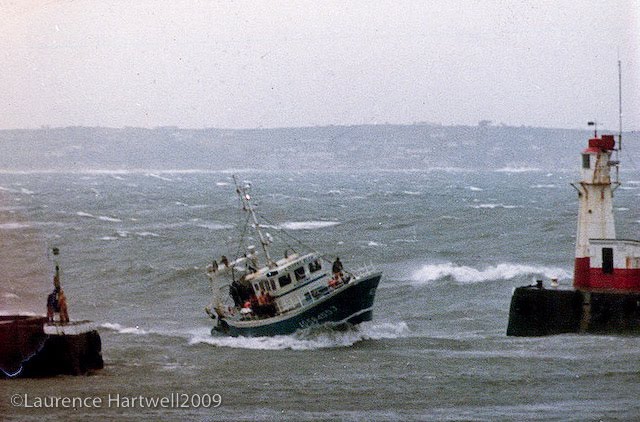 With the working title, “Discard ban can benefit fish and fishers, but sustainability must come first” here are the opening lines of an article written by Bryce Stewart – and you wonder why fishermen get a tad upset when they read this kind of thing! Read more here 22:29
With the working title, “Discard ban can benefit fish and fishers, but sustainability must come first” here are the opening lines of an article written by Bryce Stewart – and you wonder why fishermen get a tad upset when they read this kind of thing! Read more here 22:29
Satellite Observations Show El Nino Coming — And It Could Be The Worst In Decades
Data from ocean-observing satellites and other ocean sensors indicate that El Niño conditions appear to be developing in the equatorial Pacific Ocean. Conditions in May 2014 Read more here 16:07
Watermen,scientists in Maryland – worst crab season in recent memory,blaming weather patterns, an abundance of predators and cannibalism.
 It’s definitely an off season,” John “Willy” Dean of Scotland, a crabber who is the president of the St. Mary’s Watermen’s Association, said this week. He said last year he saw lots of very small crabs as he hauled in his pots, evidence supported by the results of an annual survey conducted by Maryland Department of Natural Resources. “We never caught those crabs. Nobody did,” he said. more@somdnews 08:48
It’s definitely an off season,” John “Willy” Dean of Scotland, a crabber who is the president of the St. Mary’s Watermen’s Association, said this week. He said last year he saw lots of very small crabs as he hauled in his pots, evidence supported by the results of an annual survey conducted by Maryland Department of Natural Resources. “We never caught those crabs. Nobody did,” he said. more@somdnews 08:48
Scientists, Industry Leaders Question Validity of Yellowtail Flounder Assessments
![]() As the Transboundary Resources Assessment Committee (TRAC) publicizes its recommendations for drastically reduced catch limits for Georges Bank yellowtail flounder, a diverse group of industry stakeholders and marine scientists are raising questions about the reliability of the TRAC’s advice and the underlying science behind it. This includes one of the largest industry associations, the Fisheries Survival Fund, and the current President of the American Institute of Fishery Research Biologists (AIFRB), Dr. Steve Cadrin. more@savingseafood 12:29
As the Transboundary Resources Assessment Committee (TRAC) publicizes its recommendations for drastically reduced catch limits for Georges Bank yellowtail flounder, a diverse group of industry stakeholders and marine scientists are raising questions about the reliability of the TRAC’s advice and the underlying science behind it. This includes one of the largest industry associations, the Fisheries Survival Fund, and the current President of the American Institute of Fishery Research Biologists (AIFRB), Dr. Steve Cadrin. more@savingseafood 12:29
Scallop Industry: There has been “no progress” in Yellowtail Flounder Assessments Links
Editorial: NOAA ‘Camelot’ confab cries out for accountability
 It’s hard not to laugh at NOAA law enforcement’s role-playing workshop in which highly-paid and supposedly adult lawyers imagined themselves as “knights,” “merchants,” or “dreamer-minstrels” in the days of Camelot. Read more here
It’s hard not to laugh at NOAA law enforcement’s role-playing workshop in which highly-paid and supposedly adult lawyers imagined themselves as “knights,” “merchants,” or “dreamer-minstrels” in the days of Camelot. Read more here

































